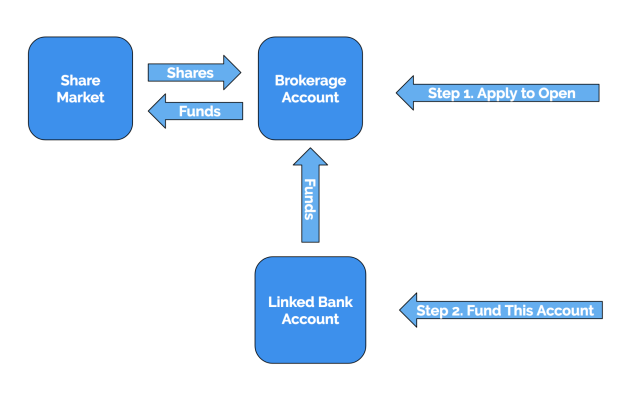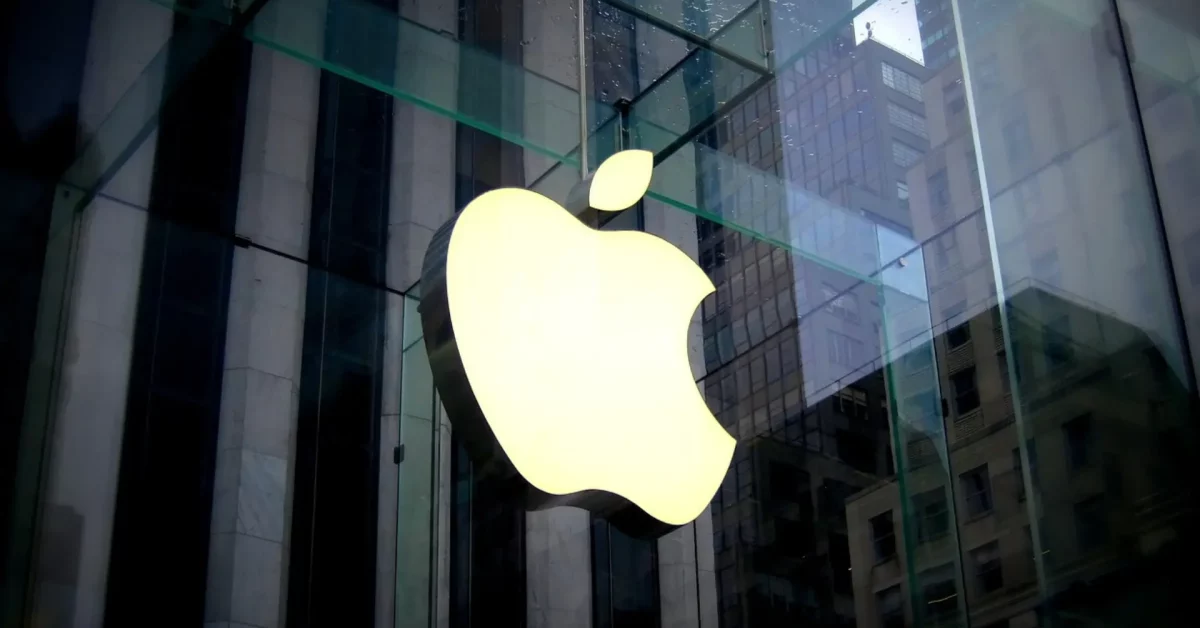
Barrick Reaffirms Commitment to Reko Diq Development
November 27, 2025
Aurangzeb Signals Shift Toward Steady, Sustainable Economic Growth
November 28, 2025How to buy stocks in Pakistan in 2025 (PSX for beginners)
So, you want to know how to start investing in Pakistan? Welcome to the club. Whether you’re a college student with some savings or a professional, looking to grow your wealth beyond a standard bank account, the Pakistan Stock Exchange isn’t as intimidating as it sounds. Sure, it’s not TikTok-level easy, but it’s doable once you understand the basics. This guide breaks down everything you need to know about buying your first stock on PSX, from paperwork to placing orders, without the finance jargon that makes your eyes glaze over.
Read more: JazzCash Partners with K-Trade for Profitable Stock Exchange
What is Pakistan Stock Exchange?
The Pakistan Stock Exchange (PSX) is where companies list their shares and investors buy and sell them. Think of it as a digital marketplace, but instead of buying sneakers, you’re buying tiny pieces of companies. It’s the country’s largest and most liquid financial market, where billions of rupees change hands daily.

Source: PSX Logo (Wikipedia)
History and evolution of PSX (KSE to PSX merger)
Back in 2016, Pakistan had three stock exchanges: Karachi Stock Exchange (KSE), Lahore Stock Exchange (LSE), and Islamabad Stock Exchange (ISE). They merged to form PSX, streamlining operations, and making the market more efficient. The Karachi Stock Exchange, founded in 1947, was the oldest and most active, so PSX headquarters stayed in Karachi. This merger was basically Pakistan’s financial glow-up moment, attracting more international investors and improving market infrastructure.
Why invest in Pakistan stock market?
Pakistani stocks have historically offered better returns than traditional savings accounts or fixed deposits. With inflation eating away at your cash, the stock market gives you a fighting chance to actually grow your money. Plus, you get to own pieces of major companies like Engro, Lucky Cement, or HBL. The potential for capital appreciation and dividend income makes stock market investment in Pakistan attractive for long-term wealth building.
PSX market structure and key indices (KSE-100, KSE-30)
The KSE-100 Index is PSX’s main benchmark, tracking the top 100 companies by market capitalization. It’s like the popularity contest winner of Pakistani stocks. The KSE-30 Index includes the 30 most liquid stocks, perfect for beginners who want to stick with companies that are easier to buy and sell. These indices help investors gauge overall market performance and make informed decisions.
How the stock market works in Pakistan
Companies need capital to grow, so they sell shares to the public through the stock exchange. When you buy a share, you own a fraction of that company. Share prices fluctuate based on supply, demand, company performance, economic conditions, and sometimes just market mood swings. The Pakistan stock exchange operates Monday through Friday, with trading hours from 9:15 AM to 3:30 PM. Your goal is to buy low and sell high, though timing the market perfectly is basically impossible.
Prerequisites for buying stocks in Pakistan
Basic requirements for Pakistani residents
Valid CNIC (Computerized National Identity Card)
Your CNIC is your golden ticket. No CNIC, no trading. Simple as that. Make sure it’s not expired, because brokers are strict about this.
Pakistani bank account
You’ll need a local bank account to transfer funds to your brokerage account and receive dividends or sale proceeds. Most major banks work fine, just make sure it’s active and in your name.
Proof of income documents
Brokers need to verify that you’re not laundering money. Salary slips, bank statements, or tax returns usually do the trick. Even if you’re starting small, they’ll ask for these.
Requirements for overseas Pakistanis
Roshan Digital Account (RDA)
Overseas Pakistanis have it easier now thanks to RDA. This special account lets you invest in PSX from abroad without the usual headaches. You can open it online through participating banks.
Roshan Equity Investment (REI) guidelines
REI is the framework that allows RDA holders to invest in Pakistani stocks. You can repatriate your capital and profits, making it a legitimate option for non-resident Pakistanis who want exposure to the home market.
Requirements for foreign investors (non-Pakistanis)
Foreign investors need Special Convertible Rupee Accounts (SCRA) and must register with the State Bank of Pakistan. The process involves more paperwork and regulatory approvals, but it’s doable for serious investors.
Step-by-step guide: How to buy stocks in Pakistan
Step 1: Choose a stockbroker in Pakistan
Top licensed brokerage firms on PSX
There are over 150 licensed brokers on PSX, but stick with reputable names like Arif Habib Limited, AKD Securities, JS Global Capital, Topline Securities, or Aba Ali Habib. Do your homework and check their SECP registration.
Factors to consider when selecting a broker
Look at commission rates, customer service, trading platform quality, research reports, and physical branch access if you prefer face-to-face interactions. Read reviews and ask around investor communities.
Online vs. traditional brokerage services
Online brokers offer convenience and usually lower fees. Traditional brokers provide personalized service and hand-holding, which beginners often appreciate. Many firms offer both options now.
Step 2: Open a brokerage account
Standard Account Opening Form (SAOF)
SAOF is the industry-standard form regulated by SECP. It collects your personal information, financial details, and investment experience. Fill it honestly because you’re signing a legal document.
Sahulat account for beginners
Sahulat accounts are simplified accounts for small investors with reduced documentation requirements. They have trading limits but are perfect for stocks in Pakistan for beginners who want to start with minimal hassle.
Online account opening process
Many brokers now offer digital onboarding. Upload your documents, complete the forms online, do video verification, and you’re usually approved within 2-3 business days.
Physical account opening procedure
Visit the broker’s office with original documents, fill out forms, get them attested, and wait for approval. This takes longer but some people prefer human interaction.
Required documents and verification process
Expect to submit your CNIC copy, bank statement, proof of income, recent utility bill, and passport-sized photos. Brokers verify these with NADRA and your bank.

Source: How to Open A Brokerage Account (Rask Education)
Step 3: Understand your CDC sub-account
What is CDC (Central Depository Company)?
CDC is Pakistan’s central securities depository. It holds all shares in electronic form, eliminating physical share certificates. Think of it as the vault where your stocks are stored digitally.
How CDC sub-accounts work
When you open a brokerage account, your broker creates a CDC sub-account under their main account. Your shares are credited here after purchasing and debiting when you sell them. You’ll get a unique CDC account number for tracking.
Step 4: Fund your trading account
Transfer money from your bank account to your broker’s designated bank account. Most brokers accept online transfers, cheques, or direct deposits. The funds usually clear within one business day.
Step 5: Research and select stocks to buy
How to analyze companies listed on PSX
Check out the company’s annual reports, quarterly results, debt levels, and management quality. Look at revenue trends and profit margins. PSX’s website provides financial data for all listed companies.
Understanding stock sectors in Pakistan
PSX has various sectors: banking, cement, oil and gas, textiles, fertilizers, food, and technology. Each sector performs differently based on economic conditions. Diversifying across sectors reduces risk.
Best stocks for beginners in Pakistan
Blue-chip stocks like HBL, MCB Bank, Engro Corporation, Lucky Cement, and Pakistan State Oil are relatively stable. They’re not glamorous, but they’re less likely to tank overnight.
Step 6: Place your first stock order
Market orders vs. limit orders
Market orders are executed immediately at current prices. Limit orders only execute at your specified price or better. Beginners should use limited orders to avoid buying at inflated prices during volatile moments.
Buying stocks through online trading platforms
Log into your trading portal, search for the stock symbol, enter quantity and price, review the order, and hit submit. You’ll get instant confirmation if it’s a market order.
Buying stocks through your broker
Call or WhatsApp your broker (yes, WhatsApp is standard), tell them what you want to buy, and they’ll execute the order. Confirm everything in writing.
Step 7: Understand trade execution and settlement
NCCPL settlement process (T+2)
NCCPL (National Clearing Company of Pakistan Limited) handles settlement. T+2 means if you buy on Monday, shares are delivered and payment is settled by Wednesday. This is when ownership officially transfers.
Trade confirmation documents
You’ll receive a contract note from your broker detailing your transaction, including price, quantity, charges, and settlement date. Keep these tax records.
Minimum investment required in PSX
How much money do you need to start?
Technically, you could start with as little as PKR 5,000 to 10,000, but realistically, having PKR 25,000 to 50,000 gives you better options. With more capital, you can diversify and absorb brokerage fees more easily.
Minimum share lot sizes
Most stocks trade in market lots of 500 shares. Some high-priced stocks have smaller lot sizes. Check the specific requirements for each stock before ordering.
Starting with small capital (under PKR 10,000 to 50,000)
Focus on lower-priced quality stocks. Avoid penny stocks that promise quick riches but usually deliver quick losses. Build slowly and reinvest dividends.
Types of accounts and trading options
Regular brokerage account
The standard account with no restrictions. You can trade any listed security and access margin financing if approved.
Sahulat account benefits and limitations
Sahulat accounts have simplified documentation and lower initial requirements but limit your trading volume and restrict margin trading. Great for testing the waters.
Joint accounts vs. individual accounts
Joint accounts require all holders’ consent for transactions. Individual accounts give you complete control. Choose based on your situation.
Cash accounts vs. margin trading accounts
Cash accounts require you to pay in full for purchases. Margin accounts let you borrow from your broker to buy more stocks, amplifying both gains and losses. Beginners should avoid margins until they understand the risks.
Online trading platforms in Pakistan
Best online trading apps for PSX
Popular apps include JAMAPUNJI, BLAST by AKD, Aba Trade, and broker-specific apps. They offer real-time quotes, charts, news, and one-tap trading.
KiTS (Karachi Internet Trading System)
KiTS is the official internet-based trading system connecting all PSX brokers. It’s the backbone of online trading in Pakistan, ensuring standardized execution and settlement.
Web-based trading platforms
If you prefer trading on a computer, web platforms offer bigger screens and more detailed charts. They’re identical in functionality to mobile apps.
Mobile trading applications
Mobile apps have revolutionized stock exchange Pakistan investment. You can monitor your portfolio, read news, and place orders from anywhere. Most apps are free to download.

Online Buying of Stocks
Features of online trading systems
Expect real-time quotes, watch-lists, price alerts, technical charts, order history, portfolio tracking, and market news. Advanced platforms offer research reports and screeners.
Costs of buying stocks in Pakistan
Brokerage commission rates and fees
Standard commission structure (0.15% to 2.5%)
Commission rates vary by broker and trading volume. High-volume traders negotiate lower rates. Online brokers typically charge 0.15% to 0.50%, while traditional brokers charge more.
One-sided vs. two-sided commission
Some brokers charge commission only when you buy (one-sided) . Others charge both when you buy and sell (two-sided). Clarify this upfront.
Capital Gains Tax (CGT) for filers and non-filers
Filers pay 15% CGT on gains from shares held less than four years. Non-filers pay higher rates. Shares held over four years are CGT-exempt for filers. This is why filing tax returns matters.
CVT (Capital Value Tax)
CVT is 0.02% of the transaction value, charged on both buy and sell sides. It’s deducted automatically.
NCCPL and CDC charges
NCCPL charges 0.0004% for clearing services. CDC charges are minimal for account maintenance and transfers.
PSX transaction fees
PSX charges a small percentage on each transaction to maintain market infrastructure.
Other regulatory charges (SECP fees)
SECP imposes nominal fees to fund investor protection initiatives and market regulation.
Types of investments on Pakistan Stock Exchange
Direct stock investment (equity shares)
Buying individual company shares gives you ownership stakes and potential capital gains plus dividends.
Mutual funds investment
Professionally managed funds pool money from multiple investors to buy diversified portfolios. Good for hands-off investors.
Exchange-Traded Funds (ETFs)
ETFs trade like stocks but hold baskets of securities. They offer instant diversification at low costs.
Initial Public Offerings (IPOs)
IPOs let you buy shares when companies first go public. Potentially lucrative but risky since there’s no trading history.
Rights issues and Secondary Public Offerings (SPOs)
Existing shareholders get first dibs on new shares through rights issues. SPOs are when companies issue additional shares to raise capital.
Government Debt Securities (GDS)
Fixed-income securities issued by the government. Lower risk but also lower returns than stocks.
Corporate bonds and Sukuk
Companies issue bonds to raise debt capital. Sukuk are Shariah-compliant alternatives. They pay fixed interest or profit.
Futures contracts (DFC, SIFC)
Derivatives that let you bet on future price movements. High risk, high reward. Not recommended for beginners.
Margin Trading System (MTS)
Borrowing money from your broker to buy more stocks. Magnifies both profits and losses. Tread carefully.
Investment strategies for beginners
Long-term vs. short-term investment
Long-term investing (years) reduces risk and maximizes tax benefits. Short-term trading (days to months) requires more time and expertise. Pick your lane based on lifestyle and goals.
Value investing in Pakistan stocks
Buy undervalued stocks trading below their intrinsic worth. Requires patience and fundamental analysis skills.
Dividend investing strategy
Focus on stocks paying consistent dividends. Provides regular income while you wait for capital appreciation.
Blue-chip stocks for stable returns
Established companies with strong financial and market positions. Less exciting but more reliable for stock market in Pakistan for beginners.
Growth stocks vs. dividend stocks
Growth stocks reinvest profits to expand, offering potential capital gains but no dividends. Dividend stocks distribute profits, providing income but slower growth.
Portfolio diversification techniques
Don’t put all eggs in one basket. Spread investments across sectors, company sizes, and asset types.
Dollar-cost averaging strategy
Invest fixed amounts regularly regardless of market conditions. This smooths out price volatility and reduces emotional decision-making.
Shariah-compliant investment in PSX
What is halal stock trading?
Halal stocks avoid businesses dealing with alcohol, pork, gambling, conventional banking, and excessive debt. Many Pakistani investors prioritize Shariah compliance.
SECP guidelines for Shariah-compliant investing
SECP maintains standards for Islamic investments, including screening criteria and audit requirements.
Shariah-compliant stocks list on PSX
PSX publishes a list of Shariah-compliant companies. Meezan Bank also provides a widely referenced Shariah-compliant stock screen.
Islamic vs. conventional stock investment
Islamic investing requires additional screening but operates on the same platform. Processes for investing in Pakistan stock market are identical regardless of preference.
Understanding PSX market fundamentals
How to read stock quotes and charts
Stock quotes show current price, day’s high/low, opening price, volume, and previous close. Charts visualize price movements over time.
Understanding market capitalization
Market cap equals share price times, total shares outstanding. It categorizes companies as large-cap (stable), mid-cap (balanced), or small-cap (risky).
P/E ratio, dividend yield, and key metrics
Price-to-Earnings (P/E) ratio shows if a stock is overvalued or undervalued. Dividend yield indicates annual dividend as a percentage of share prices. Learn these basics.
Bull markets vs. bear markets
Bull markets are when prices rise consistently. Bear markets see prolonged declines. Knowing which you’re in helps set realistic expectations.
Understanding volume and liquidity
Volume shows how many shares traded. High liquidity means you can easily buy or sell without affecting prices significantly.
Market indices and their importance
Indices track overall market performance. When news says “the market is up,” they’re usually referring to KSE-100 Index movements.
Research and analysis tools
PSX data portal and market information
PSX’s official website offers free access to company financials, announcements, and historical data. Use it religiously.
Company financial statements and reports
Annual and quarterly reports reveal the company’s financial health. Read them or at least the highlights.
Fundamental analysis basics
Evaluate companies based on earnings, growth potential, competitive advantages, and management quality rather than just price movements.
Technical analysis for beginners
Study price charts and patterns to predict future movements. Popular among short-term traders but requires practice.
Stock screeners and research platforms
Tools that filter stocks based on your criteria like P/E ratio, market cap, or dividend yield. They save hours of manual research.
Investor rights and protections
Know your rights as a PSX investor
You have rights to information, fair treatment, complaint resolution, and protection against fraud. SECP enforces these rights.
Centralized Customer Protection Compensation Fund (CCPF)
This fund compensates investors if their broker defaults, providing a safety net up to certain limits.
How to file investor complaints
Contact your broker first. If unresolved, escalate to PSX’s Investor Relations Department or SECP’s Complaint Management System online.
SECP investor protection guidelines
SECP mandates brokers maintain client segregation, proper record-keeping, and transparent operations.
Dealing with broker default situations
If your broker fails, CCPF covers you up to PKR 100,000 per investor. CDC still holds your shares separately, protecting your ownership.
Tax implications of stock trading in Pakistan
Capital Gains Tax rates (filers vs. non-filers)
Filers enjoy significantly lower CGT rates and exemptions. Non-filers pay punitive rates. File your taxes.
Dividend income taxation
Dividend withholding tax is deducted at source. Rates differ for filers versus non-filers.
Withholding tax on stock transactions
A small withholding tax is deducted on every sale transaction. It’s adjustable against your annual tax liability.
Tax filing requirements for stock investors
Report capital gains and dividend income in your annual tax return. Keep transaction records for at least six years.
How to minimize tax liability legally
Hold stocks over four years to avoid CGT (if you’re a filer), offset gains with losses, and maintain filer status for lower rates.
Conclusion
Learning how to invest in Pakistan stock exchange isn’t rocket science, but it does require patience, research, and realistic expectations. Start small, educate yourself continuously, diversify your portfolio, and think long-term. The Pakistan stock market offers genuine wealth-building opportunities for those willing to put in the work. Don’t expect overnight riches, but do expect to learn valuable financial skills that benefit you for life. Open that brokerage account, buy your first stock, and join the investing game. Your future self will thank you.
FAQs
How to invest in Pakistan stock exchange?
Open a brokerage account with a licensed PSX broker, complete KYC verification, fund your account, research stocks, and place your first order through online platforms or your broker. The entire process takes about a week from account opening to executing your first trade.
Can students invest in Pakistan stock market?
Absolutely. Students with a valid CNIC and bank account can open brokerage accounts. Many brokers offer Sahulat accounts with lower minimum requirements, making it accessible for students with limited capital. Just make sure you understand the risks and don’t invest money you need for tuition or essentials.






